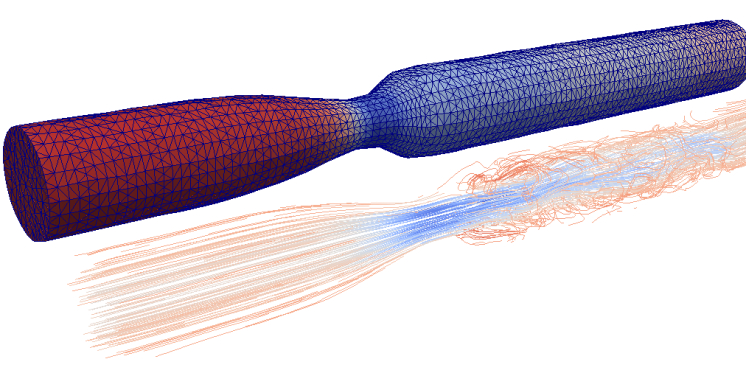Focus topic: Applied Mathematics - Analysis, Numerics, Scientific Computing
Applied Mathematics deals with the development of analytical and numerical mathematical concepts and methods that can (potentially) be applied to treat questions from other scientific disciplines. This includes mathematical modelling of problems in the life, natural, and engineering sciences and the analytical and/or numerical treatment of the resulting, usually nonlinear, systems of differential equations and optimization problems. Also the efficient implementation for computer simulations is covered.
From the mathematical perspective, particularly methods from analysis (theory of partial differential equations, functional analysis, theory of dynamical systems, regularity analysis, calculus of variations, ...), methods from numerics (discretization methods, convergence analysis, a priori and a posteriori error estimation, model reduction, ...) as well as the development and mathematical analysis of efficient algorithms are employed.
Depending on the focus, connections to other mathematical areas abound, e.g. differential geometry, functional analysis, and stochastics. In addition to the mathematical focus it is possible to write the thesis in close collaboration with groups from the application side, e.g. biology and medicine in Münster.

Simulation of blood flow through a constricted carotid artery of a mouse to study causes of atherosclerosis.


